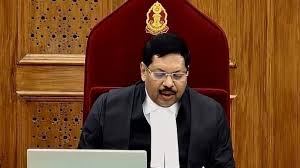Suhas Chandra Sen, J.@mdashThe Tribunal has referred the following questions of law u/s 256(2) of the income tax Act, 1961 (''the Act''):
1. Whether, on the facts and in the circumstances of the case and in view of the disclosure made u/s 68 of the Finance Act, 1965 that the amounts shown as hundi loans in its books of account represented its own income, the department had any further onus to prove that in claiming the sum of Rs. 54,197 as deduction on account of interest and brokerage said to have been paid on account of such alleged hundi loans, the assessee was guilty of concealing its income or furnishing inaccurate particulars thereof within the meaning of section 271(1)(c) of the income tax Act, 1961 ?
2. Whether, on the facts and in the circumstances of the case and in view of the findings of the Tribunal that the IAC had made out convincing case against the assessee that it had concealed the value of its closing stock to the extent of Us. 4,08,924 the Tribunal misdirected itself in law in holding that the IAC was not justified in imposing a penalty u/s 271 of the income tax Act, 1961, for concealment by the assessee of its income for furnishing by it of inaccurate particulars of such income ?
3. Whether, the finding of the Tribunal that the revenue has not discharged the onus of proving concealment of income was vitiated being based on no evidence and being inconsistent with and contradictory to the materials on record ?
4. Whether on the facts and in the circumstances of the case, the Tribunal was justified in law in cancelling the order of penalty made u/s 271(1)(c) of the income tax Act, 1961 ?
In this case, the assessment year involved is 1963-64 for which the relevant accounting period is the financial year ended on 31-3-1963. This is a case of penalty. The penalty was sought to be imposed for suppression of material facts as to the closing stock of the assessee and also interest on brokerage in respect of hundi loans wrongly shown in the assessment year. There was a disclosure petition u/s 68 of the Finance Act, 1965. The department was not satisfied that the entire interest has been disclosed in the disclosure petition and sought to impose the penalty on the ground of wrong deduction of interest.2. All these questions were gone into the assessee''s case for the assessment year 1962-63. There also these two questions of suppression of interest on brokerage and discrepancy in the closing stock were considered. In that case by an identical order of the Tribunal the penalty proceeding was quashed. After taking into consideration all the facts, it was held that the Tribunal was justified in arriving at its conclusion.
3. There is no distinguishing feature in the case under reference before us. On behalf of the revenue elaborate legal arguments have been advanced and several case laws have been cited. But for reasons best known to the Advocate for the revenue, no reference was made to the assessee''s own case--
4. In view of the principles laid down in the aforesaid judgment, question No. 1 is answered in the affirmative and in favour of the asses see. So far as question No. 2 is concerned the same is answered in the negative and in favour of the assessee. Question No. 3 is answered in the negative and in favour of the assessee. Question No. 4 is answered in the affirmative and in favour of the assessee. It is unfortunate that the learned counsel for the revenue argued the case at such a great length and cited so many decisions but failed to cite the decision in the assessee''s own case in respect of the earlier assessment year in which the same controversy arose on identical issues,
Bhagbati Prasad Banerjee, J.
I agree.

